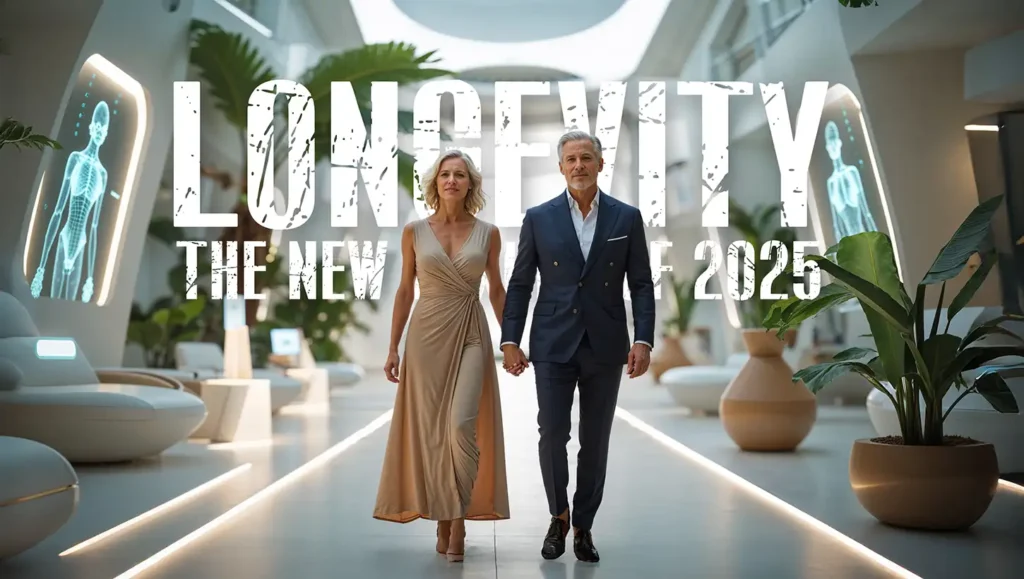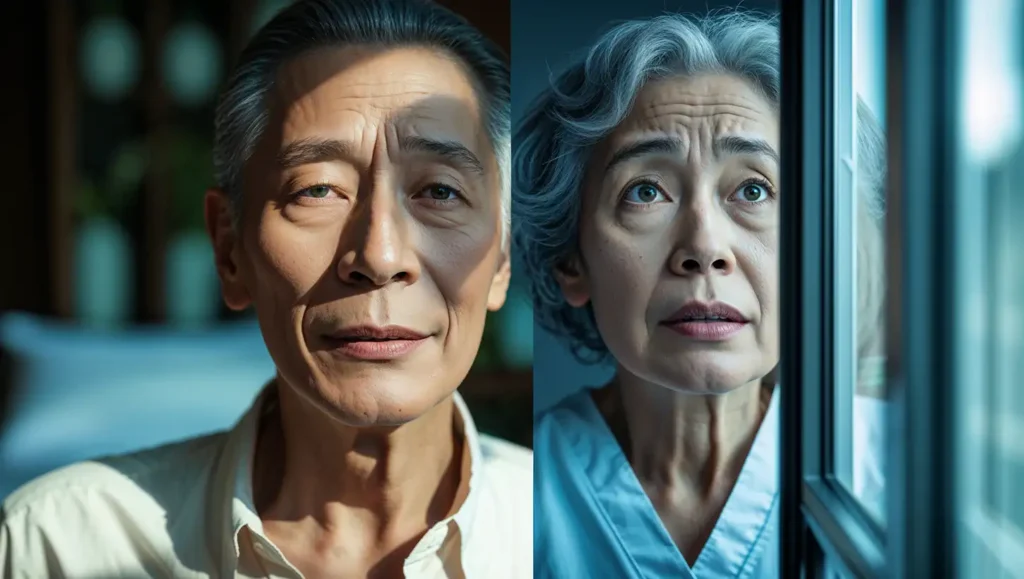In 2025, what it means to be luxurious is changing. A long time ago, being luxurious meant having a big house, expensive cars, and brand clothes. These days, more people value time and health as the most valuable things. Rich people around the world are spending a lot of money to live longer and better. They seek not just more years—but better, healthier years.

This new idea is called “longevity”—and today, living a long time is seen as the greatest luxury.
What Does Longevity Really Mean?
The word “longevity” means living a long time. But today, it also means staying healthy for longer. People don’t just want to live—they want to enjoy life. Even as they grow older, they want to stay active, sharp, and happy.

In 2025, a long and healthy life shows that someone has access to the best medical science and care. Being healthy for many years is now a symbol of success.
Our views on aging are changing. Getting old no longer means becoming sick or weak. More people now believe they can stay healthy and active for many years. This new thinking is shaping the future of health and wellness.
Global Wellness Institute and the Longevity Movement
The Global Wellness Institute (GWI) is one of the top groups in global health. They research trends and support projects to improve well-being. Lately, they’ve focused on how people can live longer and better.

GWI organizes events and connects doctors, scientists, and health leaders. Their mission is to help more people around the world enjoy a healthy and long life.
Websites like The Times of India and vinyasayogaacademy.com also report that interest in longevity is growing worldwide. People everywhere want to learn how to live longer and feel better.
Audible is an Audio Books Platform, where you can find any audio book of your interests including Stories, Histories and much more. Try Audible 100% FREE for 30 days, Click Here to Subscribe today .

Why the Rich Are Investing in More Time
Wealthy people and celebrities are leading the way in longevity. They are spending large amounts of money on new medical technology, personal doctors, and anti-aging treatments.

One famous case is Bryan Johnson, a tech businessman who follows a strict diet, takes supplements, and tracks his progress with help from many doctors. News outlets like Business Insider and Financial Times have reported on him.
Actor Chris Hemsworth, who plays Thor, also supports healthy aging. His app teaches users about fitness and aging well. On the National Geographic show Limitless, Hemsworth tests different ways to live longer and stronger.
High-end hotels and wellness resorts now offer longevity programs. One example is The Estate, co-founded by Tony Robbins. Guests can get gene tests, spa treatments, and health coaching. These programs aim to help people feel younger and live longer.
Sources like Time, Financial Times, and the Global Wellness Summit confirm: for many rich and famous people, staying young and healthy is now their top goal.
Key Pillars of a Long-Life Lifestyle
Longevity is more than just good health—it’s a full lifestyle. Here are the key parts:
Biohacking
Using science and tech to boost the mind and body. Cold showers, fasting, light therapy, and special vitamins are all tools people use.

Customized food plans
Rich people often take gene and gut tests to create personal diets. This helps them eat only what works best for their bodies.

Advanced medical treatments
Hormone therapy, stem cells, and peptide injections are popular among those who want to slow aging. These are often very expensive and found only in special clinics.

Wearable technology
Smart trackers follow sleep, heart rate, and steps. People use this data to improve their fitness and health.

Mental and emotional wellness
Staying happy and calm matters. Long-term stress can age the body. Many people now meditate, go to therapy, or use calming apps to support their mental health.

Together, these habits form the modern “longevity lifestyle”—helping people stay young, active, and well for longer.
How Science Is Extending Life
Scientists are working on new ways to slow aging. These breakthroughs include:

Senolytics
These are drugs that remove old, damaged cells—called “zombie cells”—that cause inflammation. This may help people stay healthy longer, though more testing is needed.
Gene therapy
Doctors are learning to fix or change broken genes. This might help prevent diseases related to aging. Some clinics already use these treatments, but they are still being studied.
Epigenetic testing and biomarkers
These tests show your “biological age,” which may be different from your real age. They help people track how their body is aging and adjust their habits.
Other treatments
Stem cell therapy and peptides are also being tested. One drug, rapamycin, is used by some people—including Bryan Johnson. But some studies say it may not work as expected and could even speed up aging.
Major publications like The Washington Post and Time say these new ideas are exciting. But experts warn: more research is needed before these treatments become common and safe.
Luxury or Right? The Ethics of Longevity
Not everyone can afford expensive treatments. This creates a big gap. Rich people can buy more years of good health, while others struggle with basic care.

This raises hard questions:
Is it fair that only the rich can live longer? Should health and long life be a luxury?
Some say we need better access for all. As technology gets cheaper, costs may go down. Public health programs can teach low-cost ways to live better. Governments and health groups can support fairness in care.
Longevity should not just be for the rich. Everyone deserves a chance at a long and healthy life.
Simple Steps Anyone Can Take
You don’t have to be rich to live longer. Here are easy, real-life steps you can start today:

- Eat well
Choose whole foods like fruits, veggies, fish, and lean meats. Drink water and reduce sugar and processed foods. - Move your body
Walk, run, bike, or swim. Do strength training or yoga to keep your body strong. - Sleep enough
Go to bed and wake up at the same time daily. Make your room dark and quiet. Avoid screens before sleeping. - Manage stress
Meditate, spend time in nature, and talk to friends. Reducing stress protects your mind and body. - Use affordable tools
You don’t need fancy tech. Cheap fitness trackers and free apps can help you track your health. - Stay curious
Keep learning, reading, or playing brain games. A sharp mind helps you stay young.
Even without expensive programs, you can start your longevity journey. The basics—good food, movement, rest, and joy—are powerful and accessible.
Final Thoughts: A Longer Life for All
In 2025, the idea of luxury has changed. Now, the richest people are focused on living longer and better. But this goal should not be just for the rich.

While exciting treatments exist, true longevity comes from habits anyone can build. We need to make sure that the benefits of new science reach all people.
A healthy and long life is the best kind of wealth. And it should be within reach for everyone.
References:
Global Wellness Institute
The Times of India
Business Insider
Financial Times
Time
The Washington Post
vinyasayogaacademy.com
The Economic Times
BeautyMatter
You May Also Check-Out Article on Why Matcha Is the Health Boost You Need






